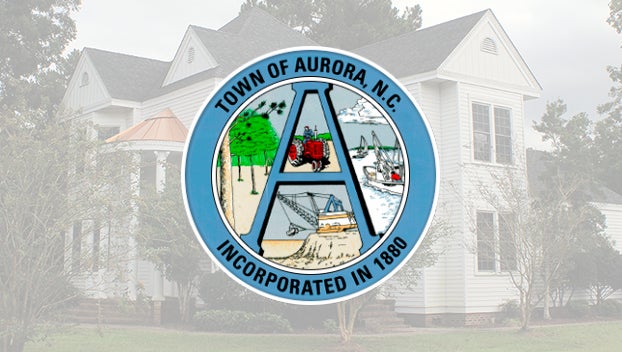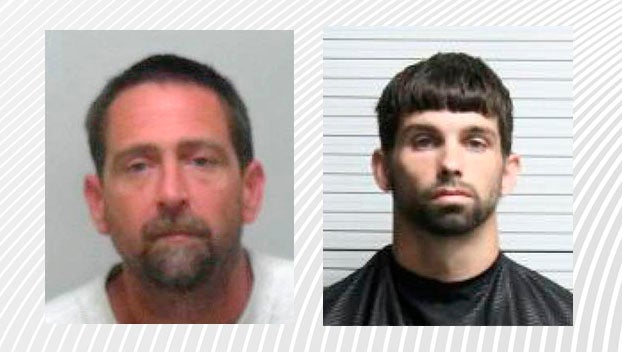First significant cold front hits today
Published 1:47 am Wednesday, December 6, 2017

- FIRE STARTERS: Heaters are certainly necessary for some as the temperatures are expected plunge into the 20s over the weekend nights, but Beaufort County Emergency Management is warning people to use caution while operating.(Vail Stewart Rumley/Daily News)
Winter weather arrives today with the first significant cold front of the season.
Temperatures are expected to drop throughout the day, settling into the 40s during the day until Monday and sinking into the 20s overnight on Saturday and Sunday.
“Temperatures are still varying, depending on where the front pushes off the coast. We could see mid-20s, but it will definitely be below freezing those two nights,” said Chris Newkirk, operations chief of fire/emergency management for Beaufort County.
With the cold weather comes alternate heating sources, and Newkirk is reaching out to residents who might be using them.
“Our concerns this time of year is just the safety of those who use the varying types of heat to help them during these cold temperatures,” Newkirk said. “At some point, there will be fires in homes that we will attribute to unsafe heating practices in the home. We want to make sure our residents stay warm during these times of cold weather and also stay safe.”
The most important message, Newkirk said, is to follow manufacturers’ instructions whether using a kerosene or an electric heater, as well as keep heaters away from any combustible material — furniture, curtains, bedding — and out of the path of travel so they’re less likely to be knocked over. Keeping combustible material away from the heat also applies to fireplaces: while Christmas greenery, stockings and decorations on the mantel and hearth might make a nice frame for a roaring fire, they may just go up in smoke, he said.
Preventing fires goes even further with smoke detectors: every level of the house should have one, and homes with gas appliances should also have carbon monoxide detectors near those appliances.
Newkirk shared the following list of items that should be addressed with the coming cold:
- Electric heaters: Use manufacturers’ instructions. “People tend to use drop cords to move them around the room. You should not use a drop cord with an electric heater — typically, it’s overloaded. Heaters pull a lot of current. On those small cords, that amount of current going through a small wire creates resistance which creates heat which creates fire,” Newkirk said.
- Kerosene heaters: “Always use these heaters in a well-ventilated area and only use the fuel that’s recommended, typically that’s K-1 kerosene. … I think the biggest hazard we’ve seen with it is refilling the kerosene when it’s empty — people try to fill it in the home. You should always refill it outdoors. You should never run the risk of spills or overfilling it within a home. Never fill the heater while it’s hot, you always allow that heater to cool before you attempted to refill it,” Newkirk said.
- Fireplaces: “The biggest thing there, if your fireplace is required to be vented, you want to make sure the chimney vent is unobstructed of any debris. … Make sure the chimney is cleaned of any excessive soot and that any damper or control valves are working as they should. Regardless of whether your fireplace is wood burning or gas logs, you should keep the fireplace clear of any combustible materials. And if you’re using real wood, you want to have some type of door or protective screen up for embers.”
- Animals: “If you can bring them inside during these cold times, that is the best option, but if you can’t, we need to make sure they have an adequate covered shelter that protects them from the elements such as wind and rain. That shelter should provide some type of bedding material for warmth: cedar chips, old blankets, anything you can lay down to give them some type of insulation. Another thing that often goes overlooked is their drinking water: you’ll have to check it periodically because the containers we keep them in tend to freeze.”
- Pipes: Newkirk said garden hoses should be disconnected and drained, and any exposed plumbing or outdoor faucets should be wrapped in some type of insulation to prevent pipes from freezing and potentially breaking. During the summer, foundation vents may be opened to provide air flow, but before the cold front hits, those vents should be closed to protect any pipes that may be exposed underneath the house.
Newkirk said his office is always happy to answer questions about safety precautions, or assistance in obtaining and/or installing smoke detectors.
“We want to make sure our residents stay warm during these times of cold weather and also stay safe,” Newkirk said.
For more information, call 252-946-2046 or follow Beaufort County NC Emergency Services on Facebook.




